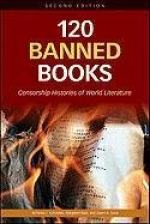|
This section contains 5,672 words (approx. 19 pages at 300 words per page) |

|
SOURCE: Coetzee, J. M. “Emerging from Censorship.” In Giving Offense: Essays on Censorship, pp. 34-47. Chicago, Ill.: University of Chicago Press, 1996.
In the following essay, South African author Coetzee explores the influence of censorship on the psychological state and work of writers.
From the early 1960s until about 1980, the Republic of South Africa operated one of the most comprehensive censorship systems in the world. Called in official parlance not censorship but “publications control” (censorship was a word it preferred to censor from public discourse about itself),1 it sought to control the dissemination of signs in whatever form. Not only books, magazines, films, and plays, but T-shirts, key-rings, dolls, toys, and shop-signs—anything, in fact, bearing a message that might be “undesirable”—had to pass the scrutiny of the censorship bureaucracy before it could be made public. In the Soviet Union, there were some 70,000 bureaucrats supervising the activities of...
|
This section contains 5,672 words (approx. 19 pages at 300 words per page) |

|


